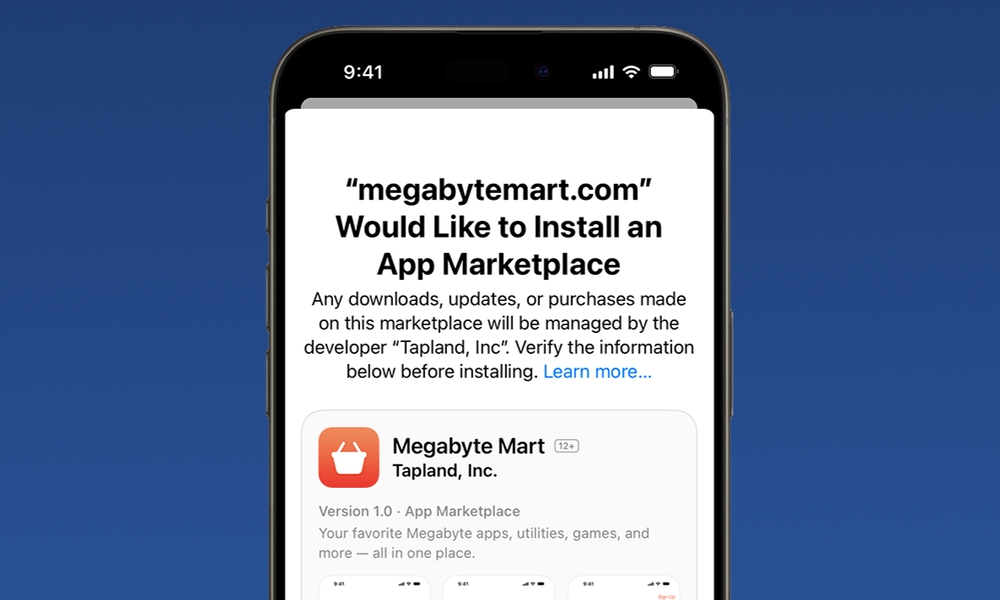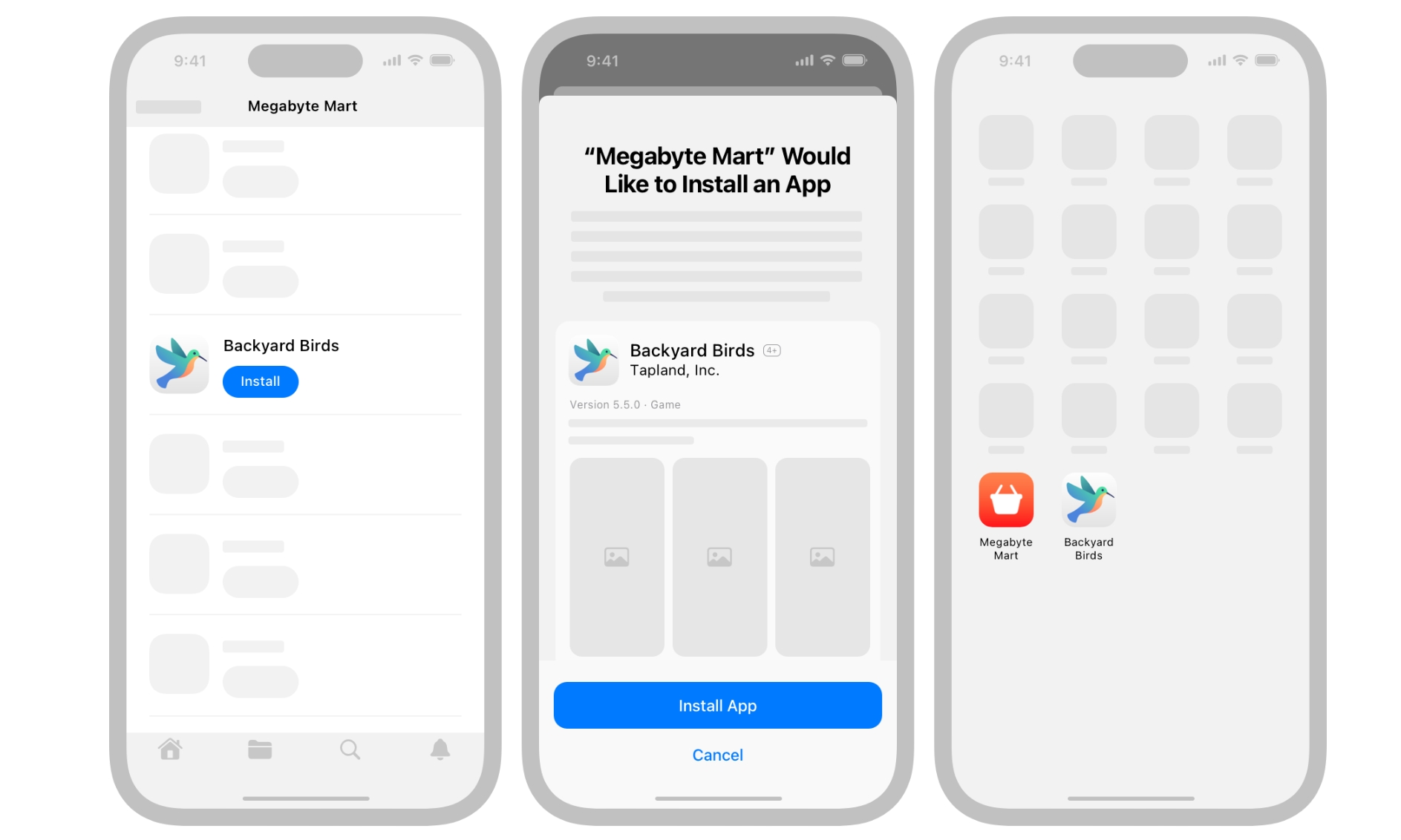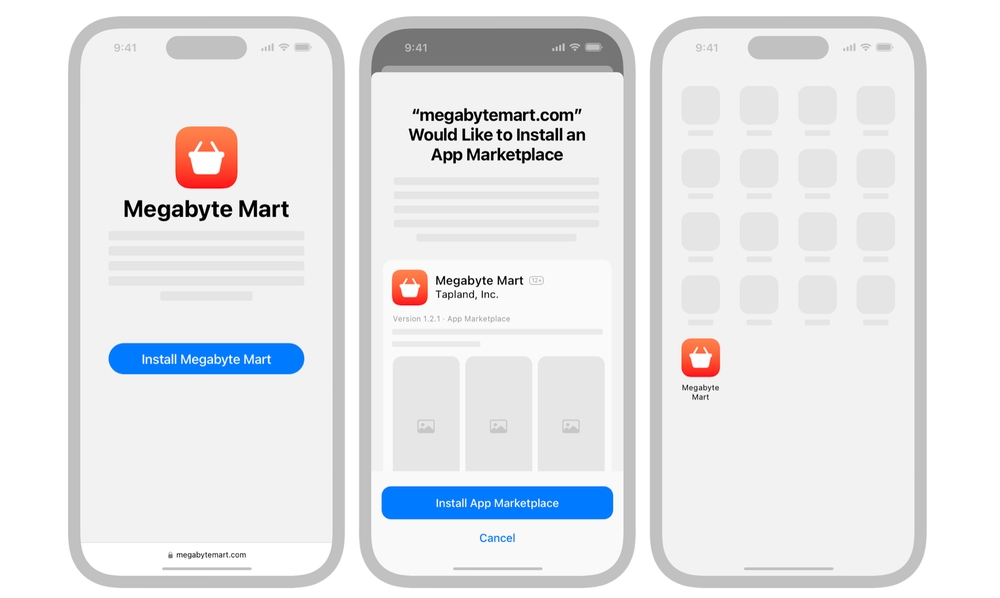How Will Apple’s ‘Alternative App Marketplaces’ Work?

Toggle Dark Mode
Last month, Apple announced significant changes to how apps will be distributed in Europe. These were the most significant changes to the iPhone app ecosystem since the App Store debuted in 2008, even if they weren’t as broad as some hoped.
While many believed that Apple would be forced to offer full sideloading — the ability to download an app from anywhere and run it on your iPhone as easily as you can on your Mac or Windows PC — what we got instead is the ability for other companies to set up competitors to Apple’s App Store.
Apple calls these alternative app marketplaces, a useful term to avoid confusion with the official App Store. Once everything is up and running, they should hopefully provide more options for iPhone users in the European Union (EU) and those developers who sell apps in the EU.
However, Apple still has several rules and restrictions around how this will work. It may be willing to give up a bit of money, but it’s not giving up control. After all, Apple wouldn’t be doing this at all if the European Commission wasn’t forcing its hand through the EU’s new Digital Markets Act. That’s also why these changes will only be coming to the 27 EU member countries — and only those 27 countries (sorry, Switzerland).
Alternative App Marketplaces
The biggest catch to these alternative app marketplaces is that they still need to be approved by Apple, and there’s a pretty high barrier to entry.
As Apple explains on its developer site, companies wanting to establish their own app marketplace will need a million-dollar line of credit (1,000,000 Euros, to be precise) from a reputable financial institution.
In order to establish adequate financial means to guarantee support for developers and customers, marketplace developers must provide Apple a stand-by letter of credit from an A-rated (or equivalent by S&P, Fitch, or Moody’s) financial Institution of €1,000,000 prior to receiving the entitlement. It will need to be auto-renewed on a yearly basis.
Apple
While that won’t be a problem for companies like Microsoft or Epic (which is, of course, already planning its own app marketplace in the EU), it’s going to leave many other potential app marketplaces out of the mix. Small businesses need not apply.
It’s arguable whether or not that’s a good thing. While it does rule out many smaller potential app marketplaces, it will also help prevent things from getting too cluttered and confusing at launch. Plus, Apple’s stance is that it wants to ensure its iPhone customers are protected by ensuring they can only buy from reputable marketplaces and not fly-by-night operations.
Whether that’s any of Apple’s business is another discussion, but the company seems to think its reputation is on the line here, and it’s probably at least partly right, at least while things are getting started. After all, people have been buying apps directly from Apple for years; it will take some time to adjust to the idea that it’s not responsible for most of what happens on other app marketplaces.
This also extends to Apple’s treatment of the apps that will be distributed on those marketplaces. While it plans to have a lighter touch than its own App Store, Apple will still require apps sold on third-party app marketplaces to be “notarized” before they can be installed on customer’s iPhones. Before notarizing an app, Apple will run a basic review to ensure it doesn’t contain any viruses or malware, isn’t egregiously fraudulent, and doesn’t break any laws. However, it won’t censor apps based on content, so third-party app marketplaces are free to distribute apps that contain pornography, gratuitous violence, or take extreme political positions — all things Apple bans on its own App Store.
How App Marketplaces Will Work
An alternative app marketplace will work through a “marketplace app” that will be installed on your iPhone from the company’s own website. It will not be distributed through the App Store, but it must still be notarized by Apple to run on your iPhone. Only those companies that meet Apple’s requirements will be allowed to publish app marketplace apps.
Marketplace iOS apps distribute to peoples devices from the web, as people download the app from the marketplace’s website. Alternative app marketplaces are the only iOS apps that can distribute on the web, and web distribution is the only way to install an alternative app marketplace.
Apple
Once installed, the marketplace app will behave similarly to Apple’s App Store, allowing users to purchase and download apps that will install directly onto their iPhone. Developers will still distribute their apps through Apple’s App Store Connect platform but can choose which app marketplaces to publish their apps on.
Developers who want to publish on third-party app marketplaces will have to switch to Apple’s new business terms, which will also change the fee structure they currently pay for their apps in the App Store. This won’t matter for developers who want to move out of the App Store entirely, but those who want to keep their apps on the App Store and sell on a third-party app marketplace will have a tough decision to make, as they’ll shift from paying a 15-30% cut of their digital purchases and subscriptions to a Core Technology Fee (CTF) of €0.50 each time their app is downloaded by a new user in a given year, although the first million downloads are free.
That CTF will apply to all downloads of their app, both from the App Store and alternative app marketplaces. Developers will also need to still pay Apple 13-20% of their take from the App Store, plus whatever fees or commissions third-party app marketplaces charge for selling their apps.
Developers of app marketplaces will also pay the CTF for each download of their marketplace app, although they don’t get the first million free so that €0.50 gets charged on the first download and will reach €500,000 once they hit a million downloads.
Apple announced the App Store Connect changes today to allow developers to begin adding alternative app marketplaces to their apps and generating alternative distribution packages for those marketplaces. Developers will also now be able to submit their iOS apps for Notarization, Apple’s basic review process that clears them for sale on third-party app marketplaces.








